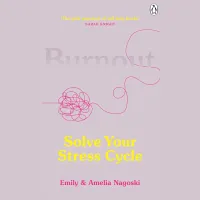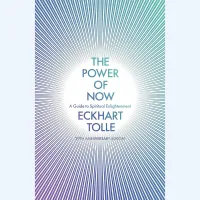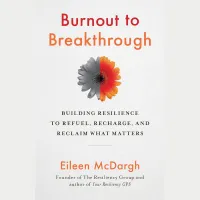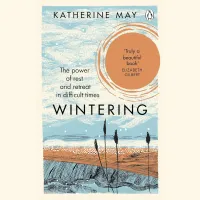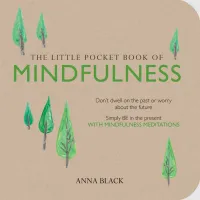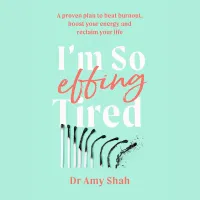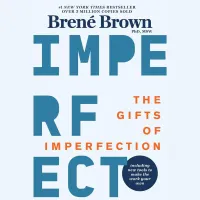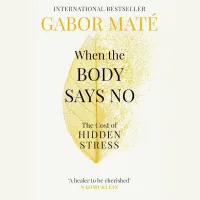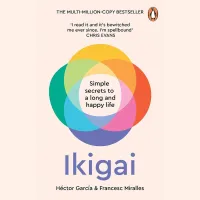9 books about burnout to help you manage stress
Psychologists recommend their top books about burnout and tips for breaking the stress cycle

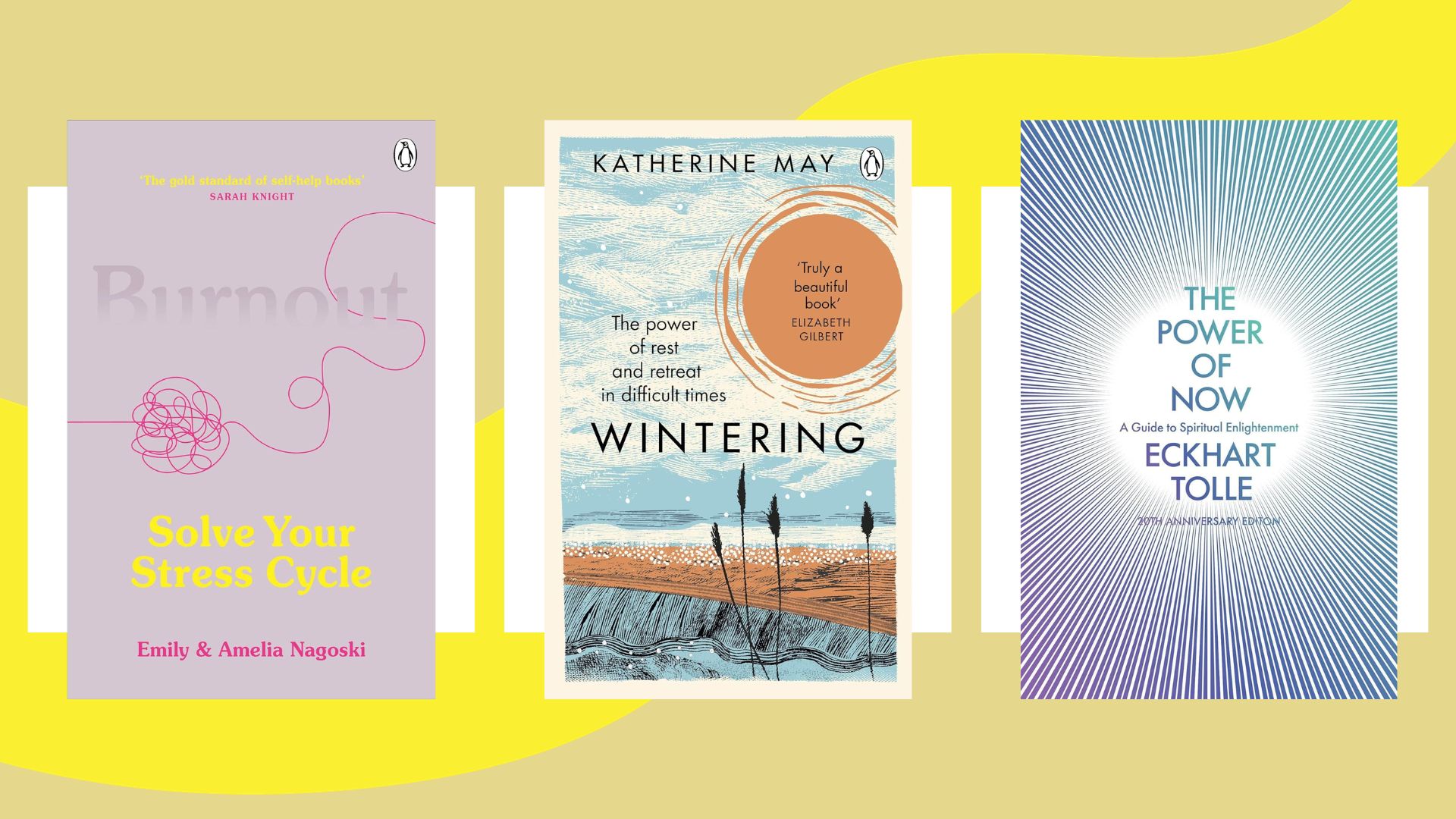
Sign up to our free daily email for the latest royal and entertainment news, interesting opinion, expert advice on styling and beauty trends, and no-nonsense guides to the health and wellness questions you want answered.
You are now subscribed
Your newsletter sign-up was successful
Want to add more newsletters?

Daily (Mon-Sun)
woman&home Daily
Get all the latest beauty, fashion, home, health and wellbeing advice and trends, plus all the latest celebrity news and more.

Monthly
woman&home Royal Report
Get all the latest news from the Palace, including in-depth analysis, the best in royal fashion, and upcoming events from our royal experts.

Monthly
woman&home Book Club
Foster your love of reading with our all-new online book club, filled with editor picks, author insights and much more.

Monthly
woman&home Cosmic Report
Astrologer Kirsty Gallagher explores key astrological transits and themes, meditations, practices and crystals to help navigate the weeks ahead.
Books about burnout can be a valuable tool in your arsenal when it comes to dealing with the severe form of stress, whether you're worried about developing the symptoms or feel you may already be in the midst of it.
For those experiencing burnout - long-term exhaustion that traditionally comes from the workplace but in recent years has received a broader definition - it will take more than books to help you get back to feeling like yourself. In many cases, those looking to learn how to recover from burnout need to implement long-term changes in their lives and may need support from professionals.
Books can, however, be a helpful tool for those who are looking to know more about burnout from work, other forms of the condition, and how to avoid burnout to begin with. Here, we've spoken to a selection of psychologists specialising in health and workplace wellbeing to reveal their top picks from across the range of books about burnout.
Books about burnout
1. "Burnout: The Secret to Unlocking the Stress Cycle” by Emily Nagoski and Amelia Nagoski
'Burnout: The Secret to Unlocking the Stress Cycle' by Emily Nagoski and Amelia Nagoski is considered to be an excellent resource for those looking to learn about habitual burnout and its impact on the mind and body.
"This book delves into the science behind burnout, explaining how our bodies react to stress and provides practical strategies to break the stress cycle," says Dr Becky Spelman, a counselling psychologist. "It's an empowering read that helps individuals to understand their responses to stress and teaches them how to manage it effectively, preventing and alleviating burnout."
2. 'The Power of Now' by Eckhart Tolle
"When we are burnt out and overwhelmed, we must step away from being the victim and shift our focus. Rather than focus on all the reasons you are overwhelmed, worrying about the past or the future, slow down and think only about the now," says Jacqueline Carson, psychologist and clinical hypnotherapist.
"Tolle’s book helps you to see that time really is an illusion and stresses the fact that we only have the now," she says. "This is extremely powerful and helps you to prioritise what really matters in your life. When you do this, any feelings of being overwhelmed melt away."
3. 'Burnout to Breakthrough' by Eileen McDargh
In this book, renowned motivational speaker Eileen McDargh says that resistance is a matter of energy management. By better managing your energy, you can build resistance and recover from burnout.
Within the book, there's a short survey for readers to complete on burnout/resiliency that aims to pinpoint a specific source of pressure and look at the problems that prevent you from recharging.
It's a lot to ask from a book but McDargh offers an in-depth analysis of the many causes of burnout, a good explanation of what burnout feels like, and offers some ways out of burnout and into resistance.
4. 'Wintering' by Katherine May
On the one hand, 'Wintering' is one of the best self-help books around, and on the other, it's a memoir detailing a personal experience with the condition.
Lowri Dowthwaite-Walsh, a cognitive behavioural psychologist says 'Wintering' by Katherine May is her pick of the best books about burnout. "Katherine May details her own recovery from burnout through the process of what she calls wintering. She contemplates how the winter seasons mirror our own inner winters when we need to rest and retreat from modern life. Reading this book feels like a process of healing," she says.
5. 'The Little Book of Mindfulness' by Anna Black
"This is a favourite of mine," says Carson. "Similar to Tolle, Black focuses on the present moment. However, her book has lots of easy-to-implement practical tips and advice. She suggests techniques like breathing and meditation, simple exercises and daily rituals. It's a lovely little book which is easy to read and beautifully illustrated."
6. 'I'm so Effing Tired: A Proven Plan to Beat Burnout, Boost Your Energy and Reclaim Your Life' by Dr Amy Shah
Looking at burnout from a slightly different angle, Dr Amy Shah suggests that exhaustion isn't normal and that paying attention to what you eat, when you eat, and how to deal with stress can help transform your life.
It's not a one-size-fits-all approach, but the hormone and gut health expert suggests that those who follow the approach can start to see changes in as little as three months.
7. 'The Gifts of Imperfection: Let Go of Who You Think You're Supposed to Be and Embrace Who You Are' by Brené Brown
Brené Brown is one of the leading voices on relationships, intimacy, and how to advocate for yourself, and the author of one of the best books about burnout. Her book 'The Gifts of Imperfection: Let Go of Who You Think You're Supposed to Be and Embrace Who You Are' "delves into self-compassion, authenticity, and letting go of perfectionism, which can be essential for combating burnout," says Dr Rina Bajaj, a counselling psychologist.
8. 'When The Body Says No' by Dr Gabor Mate
"'When The Body Says No' by Dr Gabor Mate explains what happens to the body when we experience chronic stress and trauma. He offers case studies and stories from his own practice and introduces the seven 'As' of healing to prevent illness from hidden stress,"
"This book really highlights the mind-body link like no other," says Dowthwaite-Walsh. For those wondering about the key differences between stress vs burnout, it's a great one to read as well.
9. 'Ikigai: The Japanese Secret to a Long and Happy Life' by Hector Garcia and Francesc Miralles
Ikigai is another one of the books about burnout recommended by Carson. "This little book talks about finding your purpose and flow in life, how to be resilient and not let stress take over," she says. "As it says in the title, the book centres on how those in Japan traditionally tend to worry less, slow down, and cultivate good habits. It’s interesting and has some tips and ideas that are easy to adopt in our own lives."
How do you break the cycle of burnout?
As noted, books about burnout can be helpful but there are practical steps you need to take to break out of the burnout cycle. "To avoid burnout in the future we need to avoid chronic stress and overwhelm. We need to learn how to manage our daily lives without building up this chronic stress," says Carson.
It's easier said than done and often those experiencing burnout, no matter the source, will need professional help and a serious lifestyle switch. However, the psychologists do offer the following tips:
1. Put boundaries in place
Putting boundaries in place and learning how to establish deal breakers is a real essential when it comes to dealing with burnout, says Carson. "It might be learning how to say no, not taking on too much, putting boundaries in place around work or other activities.
Boundaries establish a framework for self-care and work-life balance, adds Joanna Konstantopoulou, a health psychologist. "They can help individuals define limits on their time, energy, and emotional resources, preventing the excessive demands of work or personal life from overwhelming them," she says.
Sign up to our free daily email for the latest royal and entertainment news, interesting opinion, expert advice on styling and beauty trends, and no-nonsense guides to the health and wellness questions you want answered.
But as much as putting these boundaries on external factors, you may need to put them on yourself too. "For example, [forcing yourself to finish] a particular project before you take on something else," says Carson.
"Doing so can individuals reduce the risk of burnout and create a sustainable equilibrium between their professional and personal responsibilities, ultimately fostering resilience and long-term mental and emotional health," Konstantopoulou says.
2. Take regular breaks
A simple way to break out of difficult stress cycles is to take regular breaks. At work, Carson says this could mean "eating away from your desk or workstation and taking the time to enjoy eating your food."
"Don’t be one of those people who think they need to be seen to be working all the time, working through lunch, staying late in the evening. You might feel okay at the time but, actually, stress is building up in your body because it is not getting an opportunity to recuperate," she says.
Being mindful as you eat can also help with this, she says, as it "helps you to stay in the present and not worry, and therefore also helps to avoid the overwhelm that leads to burnout."
It won't be a possibility for everyone dealing with the syndrome though. Situations that have led to the development of caregiver burnout, for instance, are not easy to take breaks from. In this case, it's worth reaching out to support networks - whether that's friends and family who may be able to help offer you a break or professional support networks.
3. Spend some time doing exercise
Adding something else on top of a seemingly never-ending to-do list may sound impossible if you're experiencing severe stress, but exercise can help clear the mind and body. "Even just a walk has a whole host of benefits for your wellbeing," says Carson, whether that's doing more intense walking as a workout or a simple practice of walking meditation.
In practice, this might mean starting your day with a walk to the train station instead of taking a bus or driving, taking yourself to the gym or your favourite exercise class early at the weekend, or even just prioritising a 10-minute stroll once a day.
"Exercise releases endorphins, which boost your mental wellbeing, and the movement also helps to release the stagnant energy from your body. It boosts your immune system as well, which supports your overall health, reducing the risk of burnout."
As a study by Radboud University reveals, cardio activities (like running 20 minutes a day, walking, cycling, and swimming) have a hugely positive effect on work-related fatigue and wellbeing with reductions in self-reported symptoms of depression.
4. Prioritise a morning routine
A morning routine that includes meditation, setting an intention for the day, and/or writing out positive confidence affirmations is a great way to start the day and can help you ease into your to-do list with a little more ease.
"The key is to be consistent no matter what. Even if you only meditate for five minutes each morning, you will reap the benefits over time as you'll begin to feel calmer and more able to cope with stressful situations," says Carson.
"Writing out an affirmation or an intention for the day can be very powerful. It could be something like ‘Today I remain calm at all times’ or ‘Today is going to be a good day, today I will finish work on time at 5 pm’. Telling yourself how you are going to experience your day makes it more likely to happen."
If you think you may be experiencing burnout or you are struggling with your mental health, speak to your doctor. For immediate support, reach out to your NHS urgent mental health helpline or for someone to talk to, contact the Samaritans on 116 123 - open 24/7.

Dr Becky Spelman is a counselling psychologist and founder of Private Therapy Clinic. She uses psychodynamic therapy, cognitive behavioural therapy (CBT), eye movement desensitisation reprocessing, dialectical behaviour therapy (DBT) and mindfulness to treat a range of difficulties surrounding relationships, anxiety, depression, low self-esteem, social anxiety, fear of public speaking, fear of intimacy, interpersonal difficulties, anger, body image issues, eating disorders and addictions.

Jacqueline Carson is a clinical hypnotherapist, psychotherapist and meditation teacher. After being diagnosed with breast cancer in 2014, Carson left her corporate job to retrain as a clinical hypnotherapist, using the techniques to quit smoking and drinking herself.
She now works with women around the world using her experience and expertise to support them to transform their lives and create a sustainable healthy lifestyle.

Dr Rina Bajaj is an award-winning chartered counselling psychologist, trainer and published author, running her own practices in London. Dr Bajaj has over 17 years of experience within the field of mental health and wellbeing across a range of industries, including charities, the NHS, corporate companies and the education sector.

Lowri Dowthwaite-Walsh is a cognitive behavioural psychologist. She works as an honorary senior lecturer for the School of Health, Social Work and Sports Science at the University of Central Lancashire (UCLan).

Grace Walsh is woman&home's Health Channel Editor, working across the areas of fitness, nutrition, sleep, mental health, relationships, and sex. She is also a qualified fitness instructor.
A digital journalist with over seven years experience as a writer and editor for UK publications, Grace has covered (almost) everything in the world of health and wellbeing with bylines in Cosmopolitan, Red, The i Paper, GoodtoKnow, and more.
